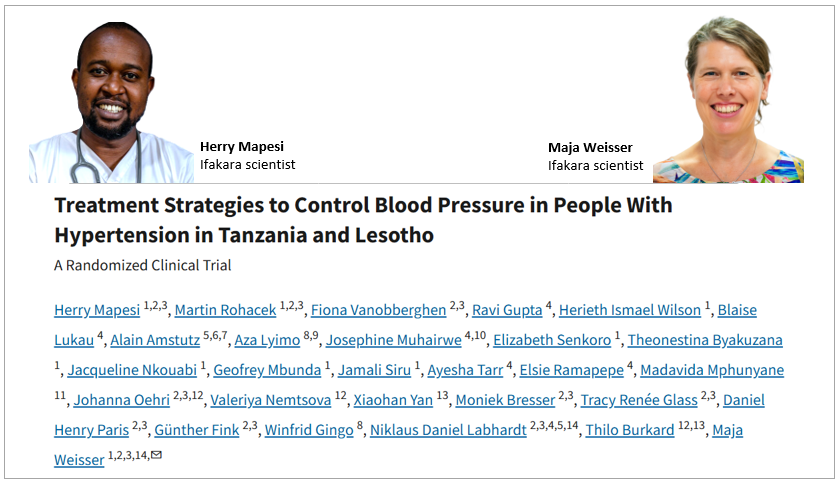
BP CONTROL: Two-pill dose effective for treating high blood pressure

A clinical trial conducted in Lesotho and Tanzania has found that a two-pill low-dose treatment for hypertension (high blood pressure) is as effective as the traditional stepped monotherapy approach. The findings, published in JAMA Cardiology, provide important insights into hypertension management in African populations.
Study involves over a thousand participants
The study, which involved 1,268 adults with untreated uncomplicated hypertension, compared three treatment strategies: stepped monotherapy with amlodipine 10mg, starting a two-pill low-dose combination (amlodipine 5mg and losartan 25mg), and a three-pill low-dose combination (amlodipine 2.5mg, losartan 12.5mg, and hydrochlorothiazide 6.25mg).
The goal was to determine whether starting treatment with combination low-dose medications would improve blood pressure control at 12 weeks, defined as blood pressure 140/90mmHg in those 65 years and older and 130/80mmHg for those below 65 years of age.
This study was led by Ifakara Health Institute scientists Herry Mapesi and Maja Weisser, with contributions from colleagues at partner institutions, including Swiss TPH, SolidarMed (Lesotho), University Hospital Basel, St Francis Regional Referral Hospital in Tanzania, and the Ministry of Health in Lesotho.
Two-pill strategy was noninferior to stepped monotherapy
Results showed that, 57% of participants receiving the 3-pill strategy, 55% receiving the 2-pill strategy, and 49% receiving the stepped monotherapy strategy reached the target blood pressure levels after 12 weeks. Looking only at systolic blood pressure target achievement rates were 75%, 76% and 79%, respectively.
The two-pill strategy was found to be noninferior to stepped monotherapy. Neither the two-pill nor the three-pill strategy was superior to monotherapy in achieving better blood pressure outcomes.
However triple therapy had less side effects than monotherapy (28% versus 35%). A post-hoc analysis found that participants aged below 65 years had better blood pressure control using a triple or dual therapy compared to monotherapy
“We did not find improved blood pressure control when starting low-dose 2-pill (CCB/ARB) and 3-pill (CCB/ARB/hydrochlorothiazide) combinations compared with stepped CCB monotherapy. However, wide CIs preclude the ability to rule out potentially clinically important effects of the additional pill strategies for hypertension control,” noted the scientists.
Implications for hypertension management
Hypertension remains a major cardiovascular risk, affecting 1.3 billion people worldwide. In Africa, the prevalence of hypertension is 25% to 30%, yet only 7% to 15% of individuals achieve controlled blood pressure due to limited treatment options.
The data confirms current WHO recommendations on starting dual therapy in a majority of patients. It also shows, that up-titrating steps are usually in all regimens. Possibly, younger populations with tighter blood pressure targets might profit from combination therapy. In addition, wide confidence intervals prevented researchers from ruling out potential clinical benefits of the additional medications.
This is critical evidence for policy-makers
With hypertension being a growing public health challenge, these findings provide critical evidence for policymakers and healthcare providers to optimize treatment guidelines and improve patient outcomes in resource-limited settings.
Read the publication here.
